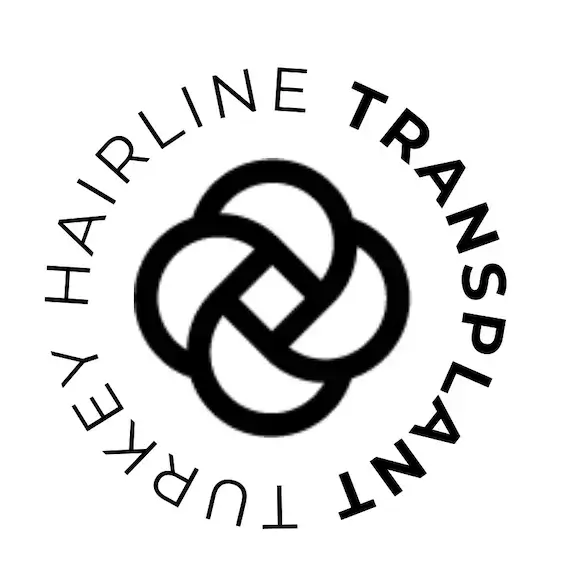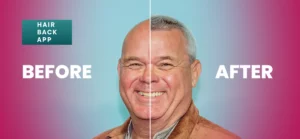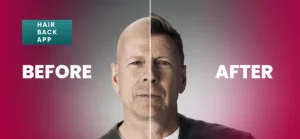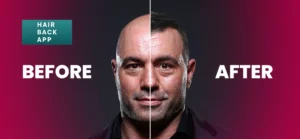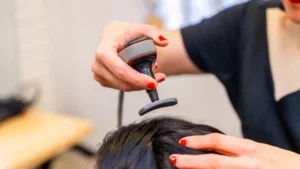Diet and hair transplant success are intricately linked, as the nutrients you consume can significantly impact the effectiveness of your procedure and the health of your hair.
Understanding this connection is crucial for anyone considering or recovering from a hair transplant. My name is Emma Wright, your resident hair transplant and restoration specialist. Today, we’ll be discussing the connection between diet and hair transplant success.
This article explores how diet and hair transplant success are connected and provides insights into optimizing your diet for better results.
The Role of Nutrition in Hair Health
Diet and hair transplant success begin with understanding the role of nutrition in overall hair health. Hair is composed mainly of protein, and its growth and strength depend heavily on the nutrients available in the body.
A balanced diet that provides essential vitamins and minerals can support healthy hair growth, while deficiencies in key nutrients can lead to hair thinning, loss, or slow growth. Therefore, diet and hair transplant success go hand in hand.
Key Nutrients for Healthy Hair
- Protein: Diet and hair transplant success are influenced by adequate protein intake, as hair is primarily made of protein. Proteins provide the building blocks for keratin production, essential for strong and resilient hair. Incorporate high-quality protein sources such as lean meats, fish, eggs, legumes, and nuts into your diet to support diet and hair transplant success.
- Iron: Iron is crucial for carrying oxygen to hair follicles, which supports hair growth. A deficiency in iron can impact diet and hair transplant success by leading to hair loss and reduced hair growth. Iron-rich foods include red meat, poultry, spinach, and lentils, which are vital for optimizing diet and hair transplant success.
- Vitamins A and C: Vitamins A and C play important roles in diet and hair transplant success. Vitamin A helps in the production of sebum, an oily substance that keeps the scalp hydrated, while Vitamin C protects hair follicles from damage caused by free radicals. Incorporate foods like carrots, sweet potatoes, citrus fruits, and berries to support diet and hair transplant success.
- B Vitamins: B vitamins, including B12, B6, and biotin, are essential for hair growth and health. Biotin, in particular, is known for its hair-strengthening properties, which contribute to diet and hair transplant success. Sources of B vitamins include whole grains, meats, eggs, and green leafy vegetables.
- Omega-3 Fatty Acids: Omega-3 fatty acids are crucial for maintaining a healthy scalp and reducing inflammation, which can impact diet and hair transplant success. Incorporate fatty fish like salmon, walnuts, and flaxseeds into your diet to support a favorable environment for hair growth.
- Zinc: Zinc supports cell division and repair, including hair cells, and helps maintain the oil glands around hair follicles. Adequate zinc intake is important for diet and hair transplant success. Good sources of zinc include nuts, seeds, and whole grains.

How Diet Affects Hair Transplant Success
Diet and hair transplant success are closely related, as the health of transplanted hair follicles is influenced by the nutrients available in the bloodstream. For the transplanted follicles to thrive and grow, the body needs to be in optimal health, which is where diet plays a crucial role.
- Promotes Healing: Diet and hair transplant success are enhanced by a balanced diet rich in essential nutrients that aid in the healing process. Nutrients like protein, vitamin C, and zinc are essential for tissue repair and recovery, which can reduce the risk of complications and ensure that the scalp heals quickly and effectively.
- Supports Follicle Survival: The vitality of transplanted hair follicles can be influenced by diet and hair transplant success. Adequate intake of vitamins and minerals supports the health of hair follicles, improving the chances of successful hair growth in the transplanted area.
- Reduces Inflammation: Diet and hair transplant success can be improved by managing inflammation post-transplant. Anti-inflammatory foods, such as those rich in omega-3 fatty acids, can help reduce inflammation and support a healthier scalp environment conducive to hair growth.
- Enhances Hair Growth: A well-balanced diet provides the necessary nutrients that support the growth and strength of new hair. By ensuring that your diet is rich in essential nutrients, you can enhance diet and hair transplant success and achieve fuller, healthier hair.
Tips for Optimizing Your Diet for Hair Transplant Success
- Pre-Transplant Nutrition: Diet and hair transplant success start with optimizing your diet before the procedure. Focus on a nutrient-rich diet to ensure your body is in the best possible condition for the surgery and recovery. A balanced diet can also help reduce stress and anxiety, positively impacting diet and hair transplant success.
- Post-Transplant Diet: After the procedure, maintain a diet rich in protein, vitamins, and minerals to support healing and hair growth. Avoid foods high in sugar and processed fats, as they can contribute to inflammation and hinder diet and hair transplant success.
- Stay Hydrated: Proper hydration supports diet and hair transplant success by maintaining a healthy scalp. Drink plenty of water and avoid excessive consumption of caffeinated and alcoholic beverages, which can dehydrate the body and affect the outcomes of your hair transplant.
- Consult a Nutritionist: Consider consulting with a nutritionist or dietitian to tailor your diet to your specific needs. A professional can help ensure you’re getting the right nutrients to support diet and hair transplant success.
Addressing Specific Concerns
For individuals dealing with one-sided hair loss, understanding the connection between diet and hair transplant success is crucial. Hair loss treatments may benefit from a diet rich in key nutrients, supporting overall hair health and transplant outcomes.
Those considering hair transplant for long hair should pay attention to their nutritional intake to ensure the success of the procedure and the strength of the transplanted hair. A diet supporting the best haircut after a hair transplant will help in achieving optimal results and maintaining the health and appearance of your new hair.
Conclusion
Diet and hair transplant success are deeply interconnected, with nutrition playing a vital role in the outcome of the procedure. By focusing on a nutrient-rich diet that supports overall hair health, you can enhance the effectiveness of your hair transplant and achieve the best possible results. Prioritize a balanced diet rich in proteins, vitamins, minerals, and healthy fats to support your hair’s vitality and growth. Understanding and optimizing the connection between diet and hair transplant success can lead to a more satisfying and effective hair restoration journey.
